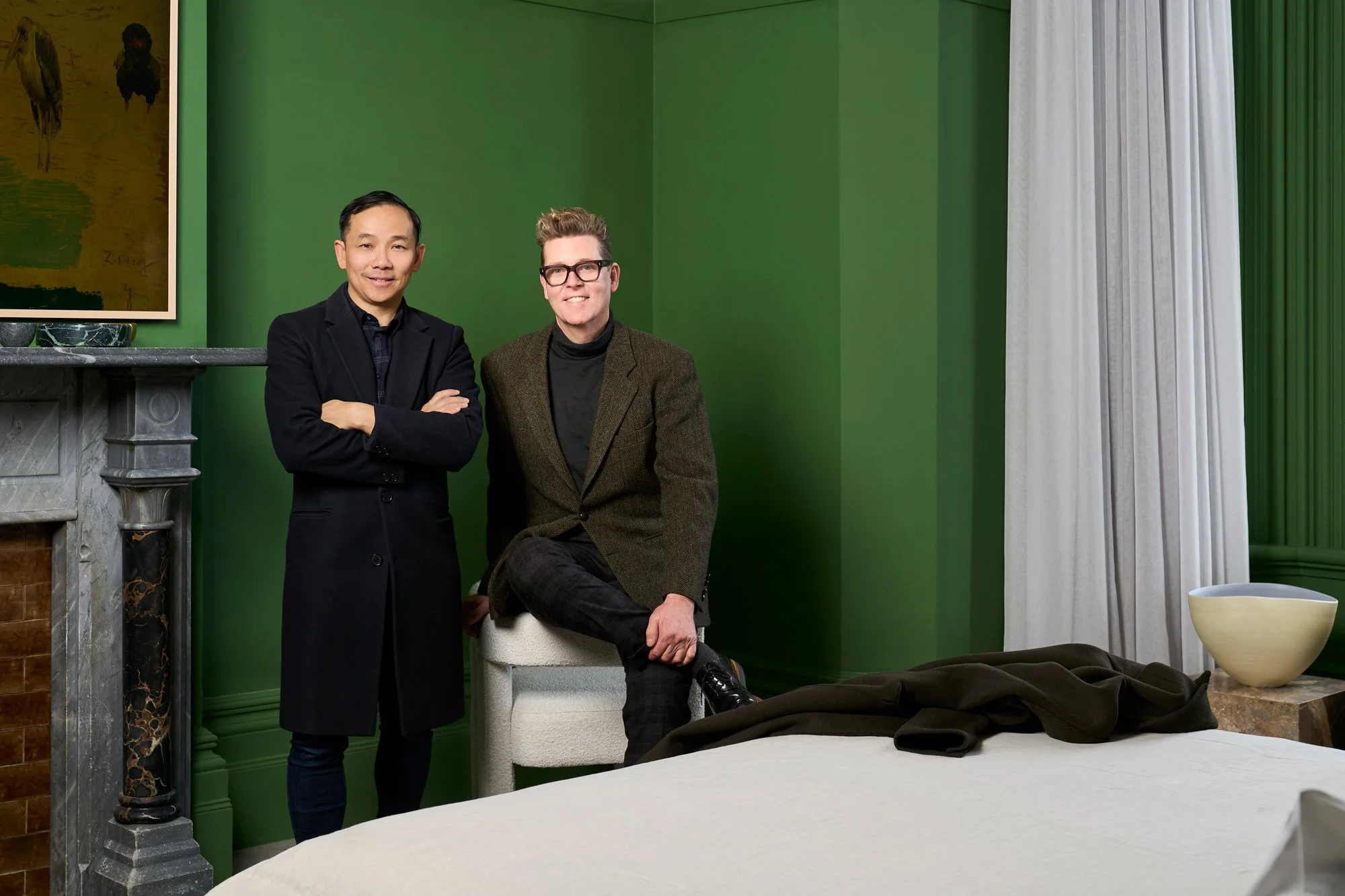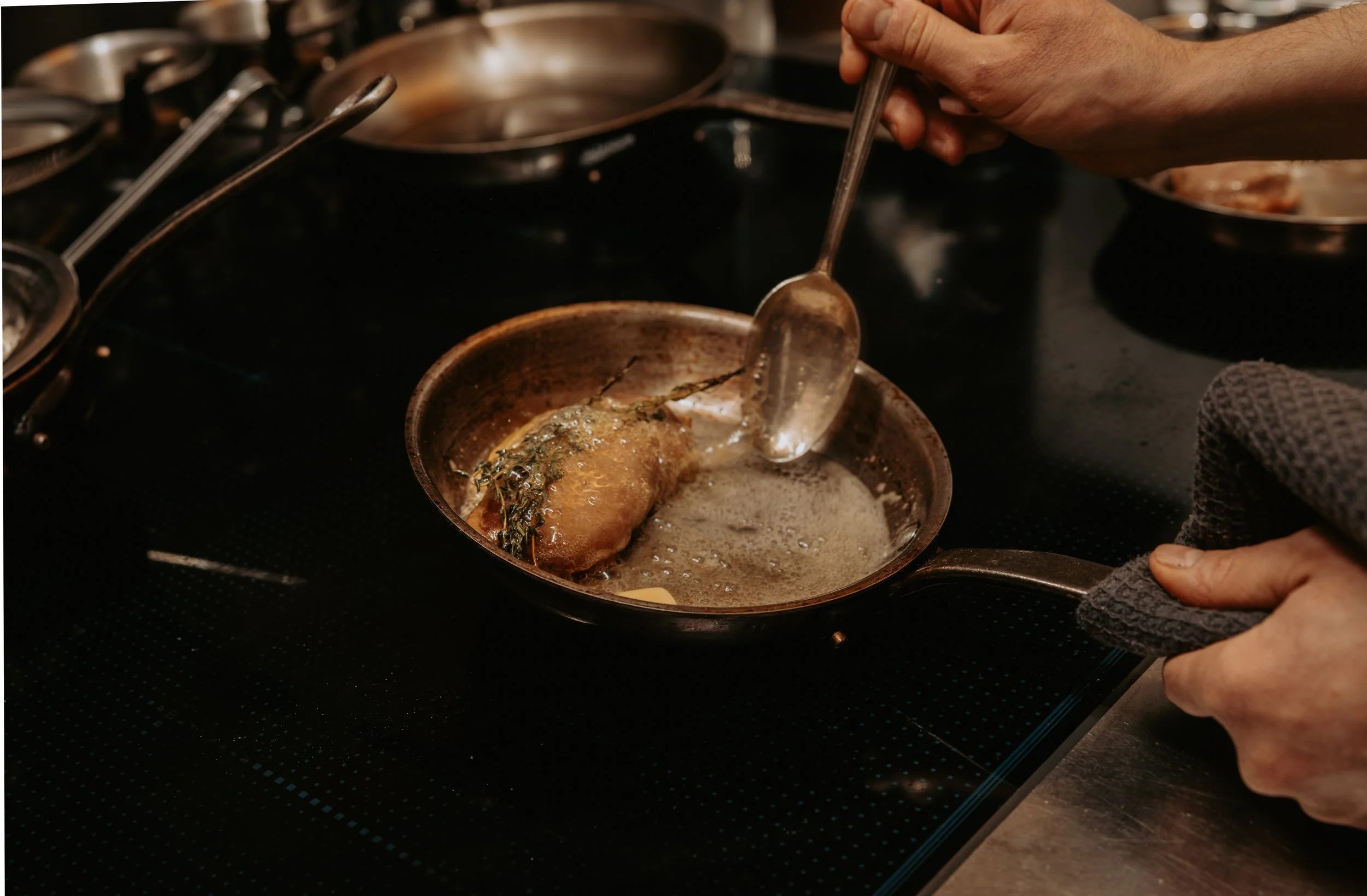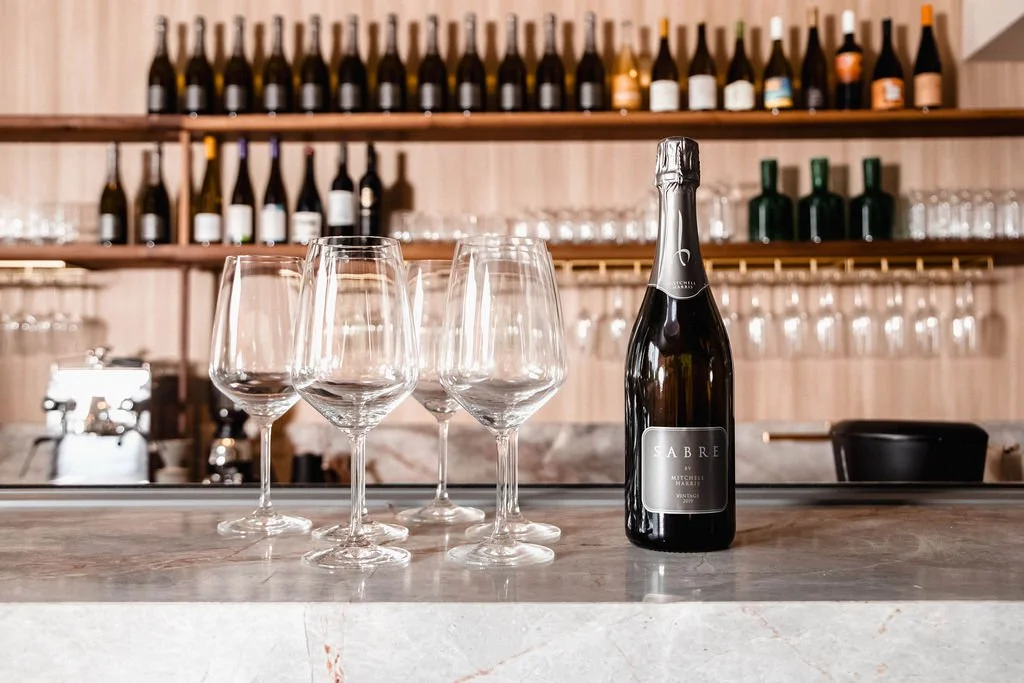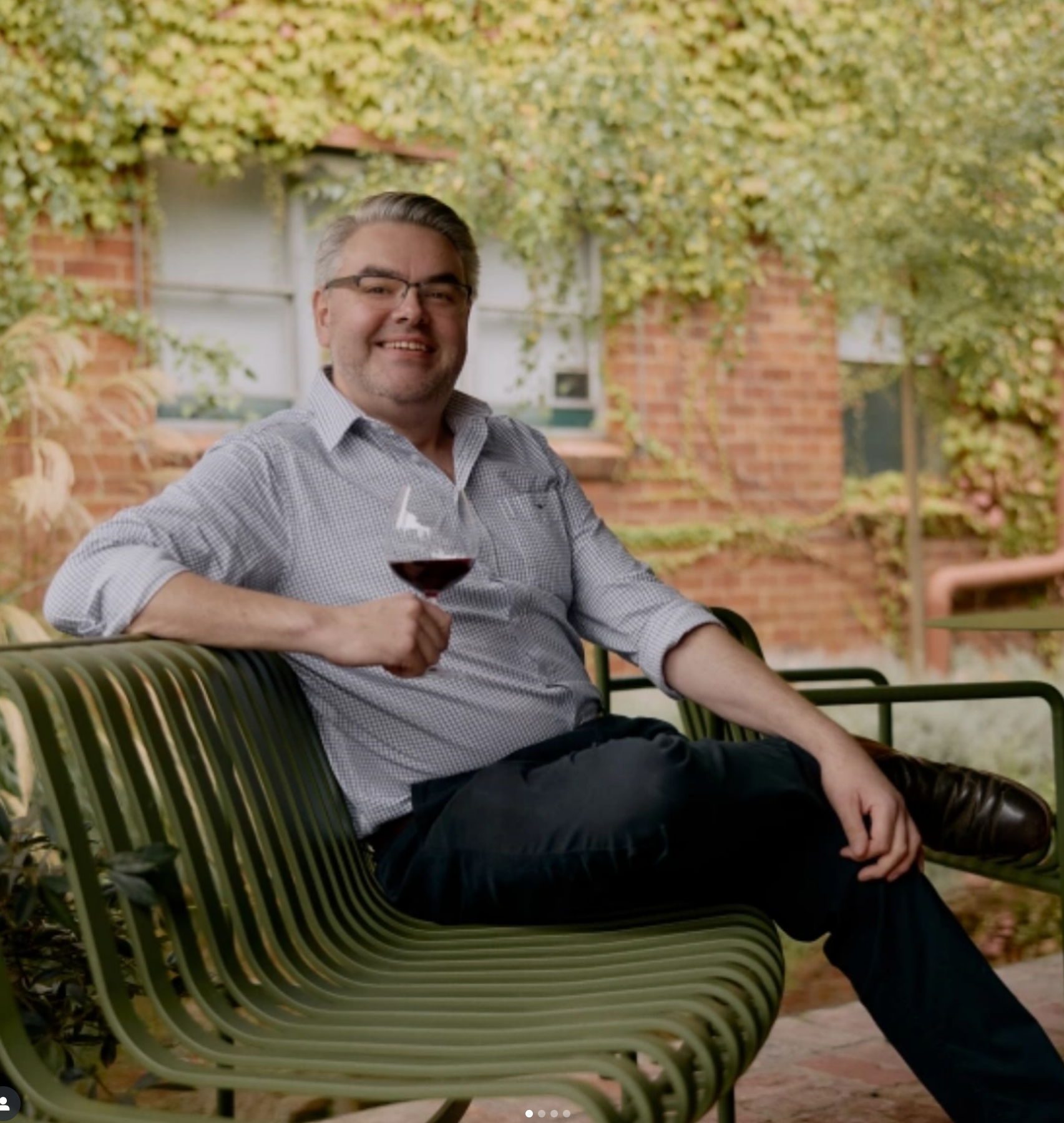Creating destination dining in regional Victoria – the duo behind Ballarat’s Hotel vera
/Fine dining and luxury accommodation go hand in hand, but creating and sustaining such an offering in today’s hospitality environment can be a daunting process. For David Cook-Doulton and Martin Shew, the challenge was one they met head-on – converting a 19th century doctor’s home in the heart of Ballarat into Hotel Vera, whose Babae restaurant won a hat in last year’s Good Food Guide.
The site conversion began just as Covid hit in 2020 and took three years to complete, with Vera opening its doors in 2023. In the middle of the process, the pair purchased and restored another hotel in Bendigo, which they renamed Hotel Ernest (after David’s grandfather; Vera was his grandmother) and which actually opened first.
“David is the design lead and I’m the marketing lead and we both drive in our own lanes”
Complementary skillsets at work
David’s passion for restoring heritage buildings was the impetus for both projects – a former retail designer, he has overseen the fitout of the hotels, while Martin, who has worked in marketing and advertising, has been responsible for building and promoting the brands.
“I think we’re a really great combination as we have complementary skillsets which don’t overlap too much,” David says. “I’m very much in the white space of ‘what could this be?’ - I take a big picture approach whereas Martin is very strategic.”
“The way I put it is that David works in the future and I work in the now,” Martin adds. “Once the business is created, I ask what can we do to maximise it, looking at micro opportunities to build the optimal customer experience. All my marketing background is about the customer journey and how that’s interwoven with the bricks and mortar of the site. David is the design lead and I’m the marketing lead and we both drive in our own lanes.”
“We’ve been very ambitious launching two boutique hotels within twelve months”
“Buildings are like time capsules”
David explains their approach to restoring the Hotel Vera site: “It was built as a doctor’s surgery and home so it’s always been a working building. Often old buildings are like time capsules and don’t have any current life, but my goal was to protect it while ensuring it could evolve. And so we’ve done a full restoration which won a National Trust Award this year – we’ve been able to tick all the boxes around heritage while giving it a modern purpose, reinterpreting the space as a seven suite hotel with a hatted restaurant. I see old buildings as containing stories within them, like the pages of a book – our job is to protect all those stories, add our own chapter and then in 10 or 20 years’ time someone else will add their chapter to them.”
“Every decision we make is for the greater good of the business,” Martin affirms. “When I reflect back, we made some mistakes – we’ve been very ambitious launching two boutique hotels within twelve months; that was extremely challenging as we were still working in our corporate jobs at the time! We also added restaurants to both business which was another layer of complexity, but so important to the destinating dining proposition we wanted to offer.”
“By offering a degustation menu at Babae we’re able to showcase the amazing produce of the Goldfields region”
David adds, “The choice of sites at Ballarat and Bendigo was strategic in that both those towns bookend the Victorian Goldfields region – allowing us to create a journey map for our customers. The region itself has arguably the best collection of heritage architecture in Australia and I feel that we’re helping to make people fall in love with it as a destination. When we’re doing breakfasts I’ll get tourist maps out and show people where to go and what to see and you can create magic moments for people. Similarly, by offering a degustation menu at Babae we’re able to showcase the amazing produce of the region, from producers and growers to winemakers.”
A restaurant cohesive with the hotel
Babae Culinary Director and Executive Chef Tim Foster
Tim Foster, Babae’s Culinary Director and Executive Chef, was Head Chef at The Healesville Hotel in Yarra Valley before opening his hatted restaurant Source Dining in Kyneton. He and his partner Peter Barton grow their own peaches, apples and citrus fruits on a farm south of Bendigo. “They’re both country boys, they love the region and they’re dedicated to producing great food and supporting local producers,” David says. “We’ve worked very collaboratively to build a restaurant that’s cohesive with the hotel. Peter is the behind the scenes man and Tim is a terrific cook and they saw this as a terrific opportunity to get back into the fine dining space so it was a natural fit.”
“The degustation offering changes every few months and the dishes will evolve over that period”
Focusing as it does on fresh local produce, the restaurant’s menu is highly seasonal. “The degustation offering changes every few months and the dishes will evolve over that period as certain ingredients go in and out of season,” David explains. “Sustainability is super important to all of us - as a farmer’s son myself, I don’t think you can create an offering like this and then be disingenuous by not doing everything you can to have the smallest possible footprint.”
A connection to environment, place and people
While the food at Vera is fine dining, Hotel Ernest offers a home cooked style menu. “We were very conscious that we didn’t want to duplicate the same menu across both venues, but offer something which would complement each building’s ethos. So at Vera we wanted to explore culinary techniques, while at Terrae which is the restaurant at Ernest, it’s completely different – a la carte with traditional recipes and beautiful, authentic country cooking techniques which Tim learnt from his grandmother. We have guests going to both venues and it creates a point of difference – we don’t want the sites to compete with each other, and also we like to promote other restaurants within the towns. I’m very anti-competition, I think it’s an awful way to be – if we get someone staying for four nights, which is often the case, we’ll encourage them to go out and explore the dining that the town has to offer.”
chef tim showcasing the menu to diners
“When we look ahead to the next five to ten years,” Martin adds, “we see the impact of AI and the risk of dehumanising and lack of connection. Therefore it’s a strong part of our ethos that we offer a dining experience which is also a connection to environment and place and people.”
The layout in Babae is open plan, beautifully furnished with three chefs working to prepare and plate the food in full view of diners. “The food is the hero,” David says, “and the way the restaurant is framed, the kitchen is almost like a stage with the chefs at work in front of our audience of customers. That means the staff have to be on point – they can’t hide out the back if they’re having an off night. It’s also personally rewarding for them because each customer has the opportunity to thank the chef personally for their meal as they leave, which again adds to the personal touch that we strive to bring to everything we do in the venue.
“Each customer has the opportunity to thank the chef personally for their meal as they leave”
“This was originally a home so we designed the dining space as almost like a home kitchen but elevated – it’s very personal, but at the same time it’s special, without being stitched up and pretentious. You almost feel like you’re in your own kitchen/dining room, you’re watching the chef prepare your meal so you’re part of the whole experience. We wanted guests to feel part of the hotel rather than a voyeur looking through the window, which is how you can feel in really big hotels.”
Authenticity the key to success
The kitchen has been fitted out with all induction cooking. “That works really well for fine dining – with induction warmers you’re warming from the bottom not the top, you’ve got a radiant heat which is ideal for specialised dishes because you’re able to have optimal control. We’ve had a really positive response to the authenticity of our sustainability approach and we are working to collaborate with local businesses to further that.
“I actually think authenticity is the key to success in any hospitality venture. When you travel around Europe and you visit a little winery in Tuscany, you’re visiting a family business – the question is how do you create something similar in Australia. And I think it’s the authenticity of being proudly Australian and celebrating the region you’re in.
“When you look at all the turmoil in the world at the moment, is there any better place to be than here? I’m proudly Australian and I think we should all be acting as ambassadors – promoting our great producers and those small business that help support us.
“Our job is to make people fall in love with our destinations, and when you love something it’s infectious and then other people feel it too. We don’t have a reception desk here, we bring our guests into our lounge, and when they go to the fireplace and look on the mantel it’s full of thank you cards from guests – they send notes and flowers of appreciation, and so many come back or send their friends, and then they fall in love as well.”



















